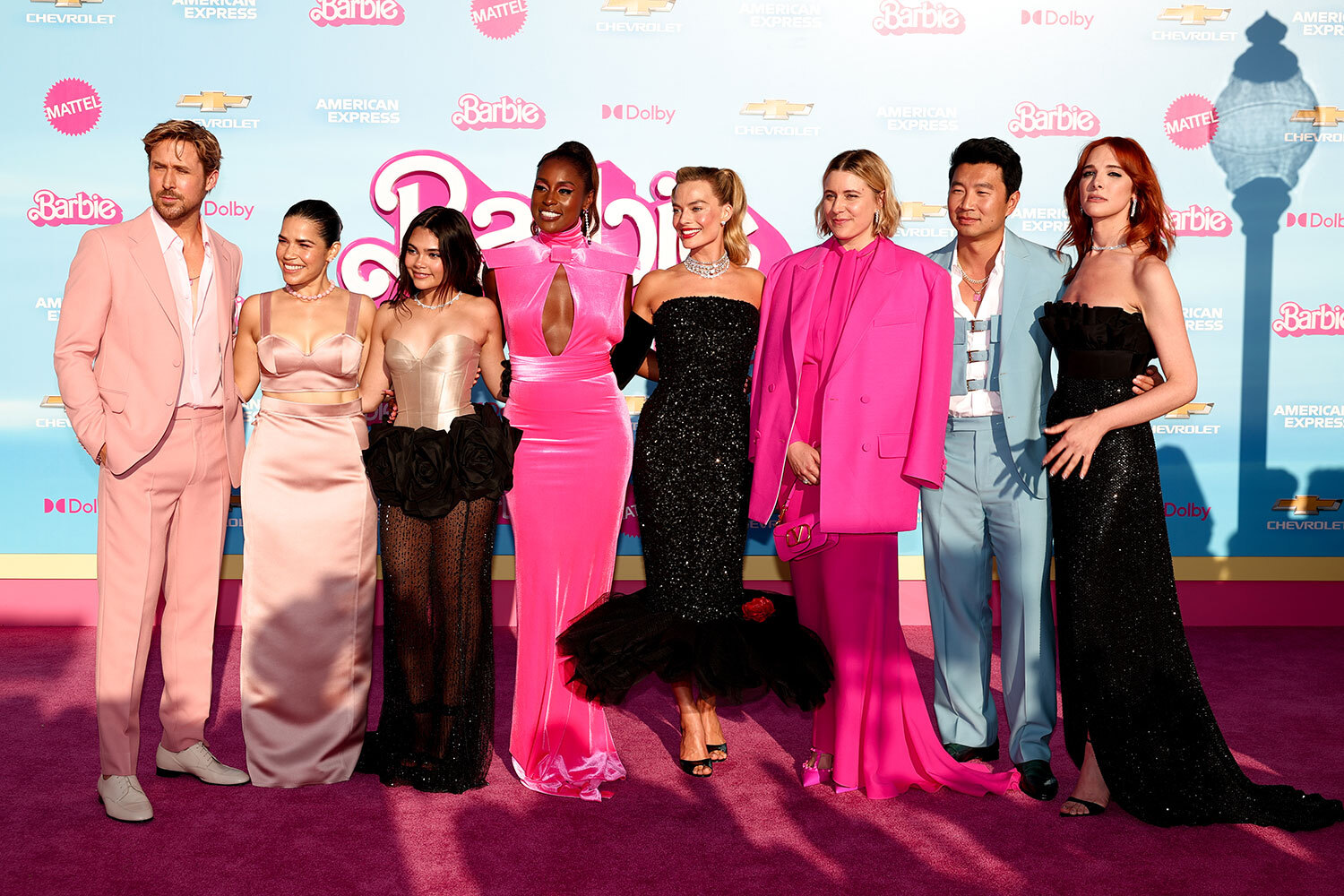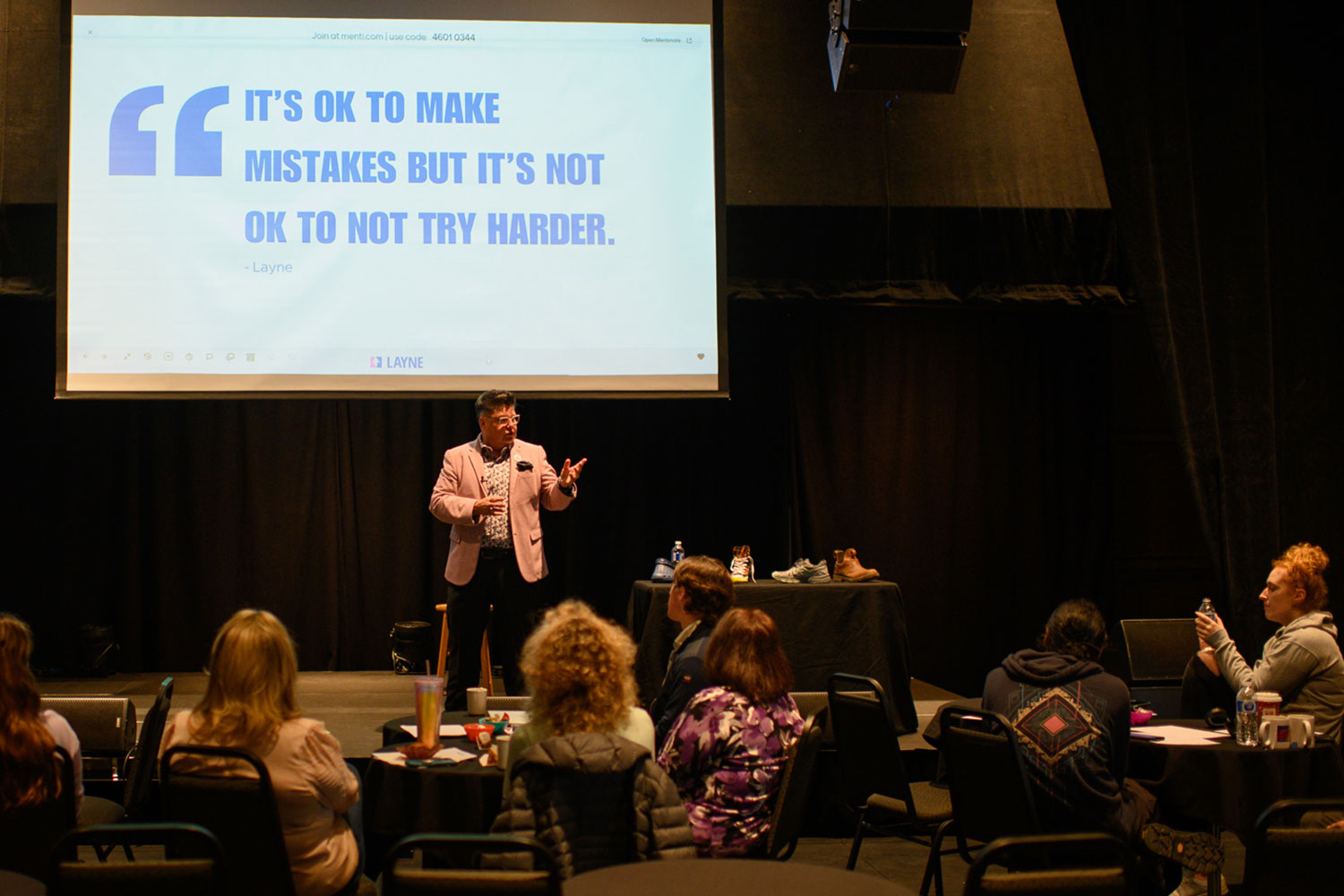Barbie’s Portrayal of the Corporate World Highlights the Pervasive Problem of Performative DEI

Much has been written about Barbie’s brilliant, brightly-coloured takedown of the patriarchy since it arrived in theaters in late July. Greta Gerwig’s live-action film based on the iconic doll has received equal measure of praise and backlash for its feminist agenda, which cleverly points out the pitfalls of the “real world,” where women must “always be extraordinary, but somehow we’re always doing it wrong,” as America Ferrera’s character delivers in her now-viral monologue.
Ferrera plays Gloria, a mother and Mattel executive, who aids Barbie on her journey from the real world back to Barbie Land. The scenes that take place at the Mattel Inc. headquarters and other corporate environments depicted in the film deliver a poignant commentary on gender equity in the workplace. The Barbie movie exposes the facade of diversity, equity and inclusion, using humour to shed light on the serious issue of performative equity—words and policies that companies put in place that claim they do equity work, but don’t actually result in any measurable improvements or impact for equity-deserving groups. Instead, performative equity often just further cements systemic issues and maintains the status quo.
Where are all the women?
The first glimpse of the fictionalized Mattel headquarters, located in Los Angeles, takes place early in the movie when a staff member, Aaron, bursts into the C-suite boardroom to reveal a surprising sight: a dozen or so men in suits gathered around a heart-shaped table. The irony is so glaring that it’s hilarious—a company that markets itself as a champion of young girls’ dreams and ambitions lacks a single woman in its top executive ranks. Shortly after, Barbie arrives and demands to meet the “woman in charge.” There isn’t one. The Mattel CEO, played by Will Ferrel, attempts to defend the makeup of his team, saying “We are a company literally made of women! We had a woman CEO in the ’90s and then another one…at some point. So that’s two right there!”
It’s laugh-out-loud funny—mostly because it’s a scenario many of us can relate to. It exposes just how absurd it is that, in Canadian corporations, for example, women occupy less than 22 per cent of board positions as of 2020. And research from the Prosperity Project shows that’s mostly white women. BIPOC women make up less than seven per cent of board, executive and pipeline roles. Over the past several years, especially since the world-changing disruption of Covid and the tidal rise of social justice movements like Black Lives Matter, many corporations have been striving to appear progressive to appease stakeholders and customers with liberal values that were galvanized by these movements. They hired Chief Diversity Officers, or CDOs, and made public pledges to work towards equity in their hiring processes, but three years later they are failing to substantively make strides toward gender parity and representation in their leadership. Companies have gotten too comfortable with superficially showcasing a commitment to inclusivity by highlighting token representations of women and individuals from equity-deserving groups on their social media channels, websites and annual reports. But the absence of genuine diversity within the upper echelons of power reveals that these gestures are more about optics than actual progress.
The old boys’ club persists
When Ken and Barbie are exploring the real world in the first half of the film, Ken quickly becomes enthralled by the idea of the patriarchy, something that didn’t exist in Barbie Land. He wanders into the lobby of a modern-looking office building and confidently asks for a job from one of the business executives he encounters. When he’s turned down due to his lack of credentials, he asks “Isn’t being a man enough?” The executive replies, “Actually, right now it’s kind of the opposite,” suggesting that women and minority groups are favoured in pursuit of superficial diversity optics. Ken then says, “You guys are clearly not doing patriarchy very well.” In a winking reply, the executive responds, “We are doing it well, we just hide it better now.”
Again, Ken’s audacity garners a lot of belly laughs in the theatre. But it’s also not that far from reality. Not only does the men’s dialogue suggests that hiring from diverse talent pools is a way to look good rather than actually acknowledge that candidates from equity-deserving groups are equally, and sometimes more qualified than their white male counterparts, the interaction is also a perfect example of affinity bias—consciously or unconsciously favouring people who look, act and/or have a similar background to us (even though, yes, Ken is wearing a spangled cowboy suit in this particular scene).
Using the finance sector as a microcosm of a pervasive issue, we see that although there are many women working in the industry, research shows that they are in roles that pay less and are less senior compared to men, and in recruitment men are hired for their potential while women have to prove themselves first. Women are 14 per cent less likely to be promoted because managers underestimate their leadership potential as compared to men.
Genuine DEI work involves evaluating every applicant equitably and giving everyone a fair chance, regardless of gender. Practices such as blind reviews of applications, where names are redacted from those reviewing, can help remove bias. As well, carefully considering what adjectives are used in job announcements can eliminate signals of gender preference (for example, using “chairperson” instead of “chairman” or “resourcing” instead of “manpower”).
The end of the CDO?
The poignant theme of performative equity in Barbie resonates profoundly with the recent layoffs of CDOs across North America. According to a recent Wall Street Journal article, thousands of diversity workers have lost their jobs in the past year. These layoffs, often seen as cost-cutting measures during economic downturns, raise eyebrows about the true commitment of institutions to fostering inclusivity. CDOs, when employed merely as reactionary measures to public opinion exemplify performative equity in its most disheartening form. Resting the burden of DEI solely on one role can be exhausting for professionals who hold these positions, and indicates a lack of genuine commitment to fostering widespread, intercultural change at a company level.
In a Forbes article from earlier this year, several CDOs revealed that they are simply not given the resources, influence or authority to enact any meaningful change within their companies, rendering their title and positions entirely performative—and yet extremely burdensome as they are often faced with a losing battle to gain funding and resources. Giving CDOs power to actually do equity work means being set up for success with the right tools. This can look like investing in research and technology focused on representation and inclusion analytics, providing access to and investment in sufficient staffing and ensuring buy-in from leadership. A genuine commitment to equity, diversity and inclusion across the entire company means aligning DEI goals with long term business strategy, even (and especially) in challenging times.
Barbie‘s satirical portrayal of performative equity leaves us with a sobering reflection on the state of diversity and inclusion in corporate North America. The movie’s cleverly crafted scenes serve as a poignant reminder that superficial gestures fall short in effecting real change. For the finance sector to truly champion diversity, equity and inclusion, it must move beyond pretence and embark on a genuine journey towards reshaping its internal culture with more equitable leadership achieved through fair hiring and promotion practices, as well as investing (both in time and resources) in their CDOs.
It is high time that we discard the heart-shaped executive tables and the outdated patriarchal assumptions and create a new corporate narrative; one where performative equity has no place, and genuine inclusion is the guiding principle for a prosperous future.









